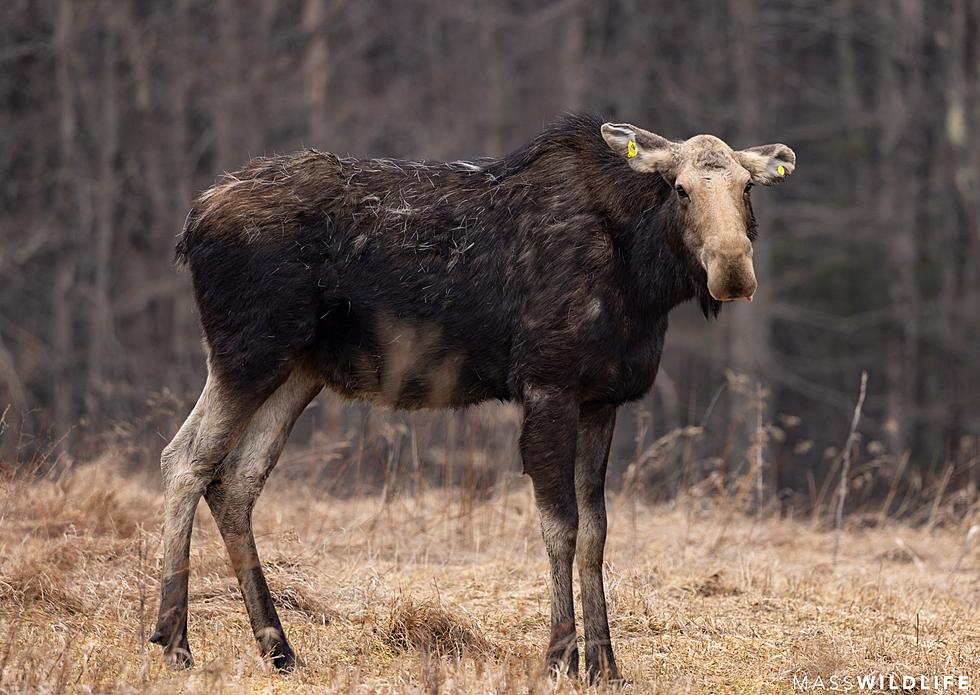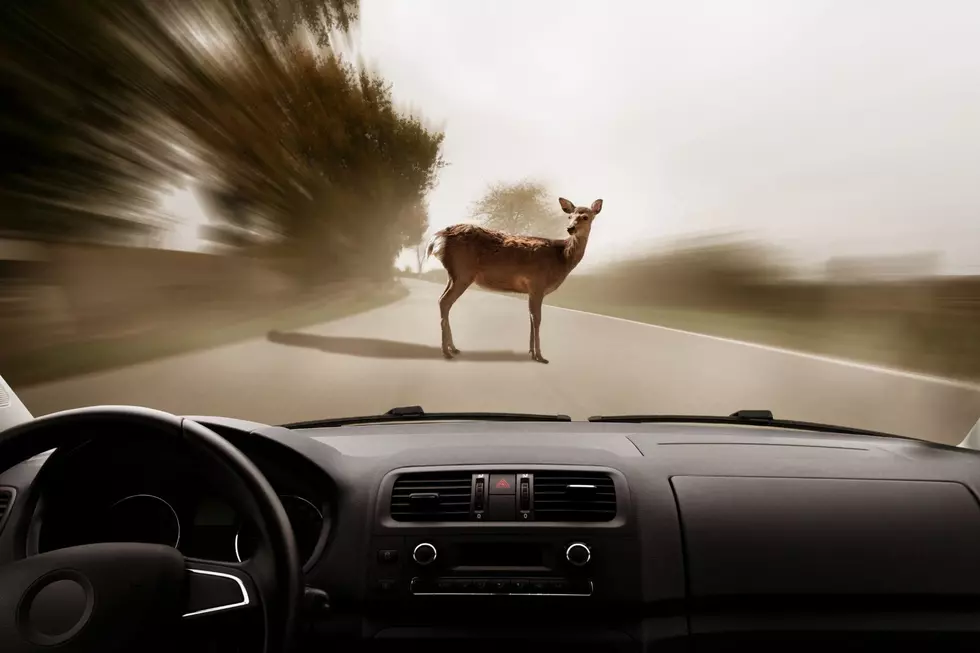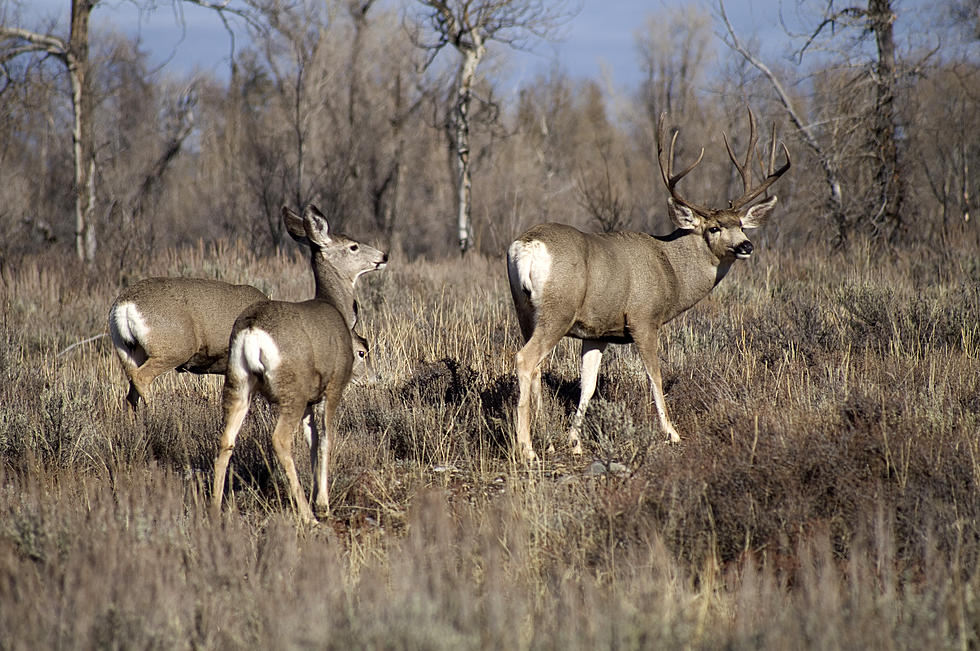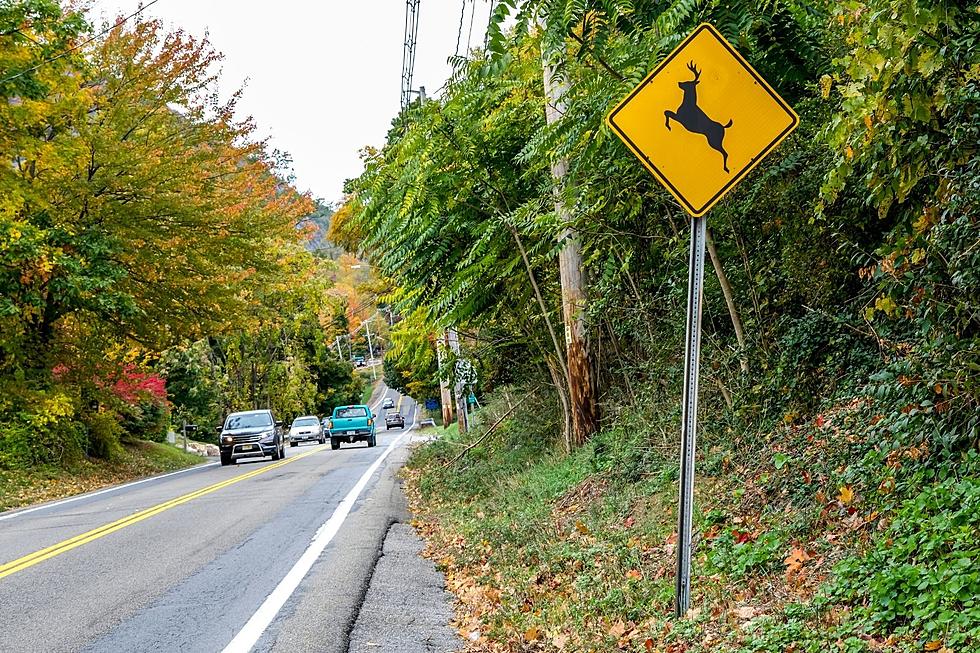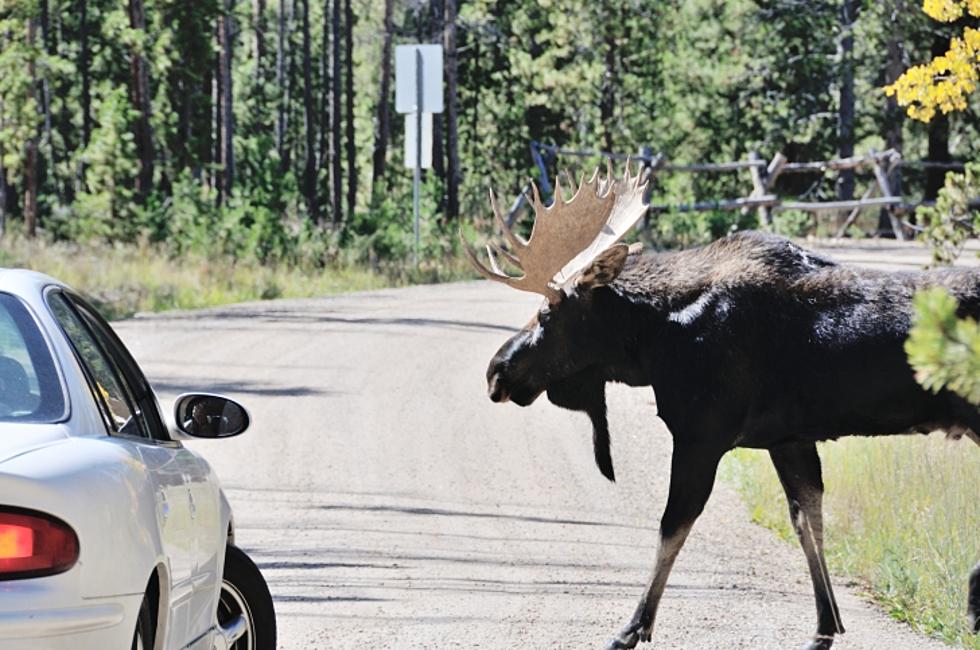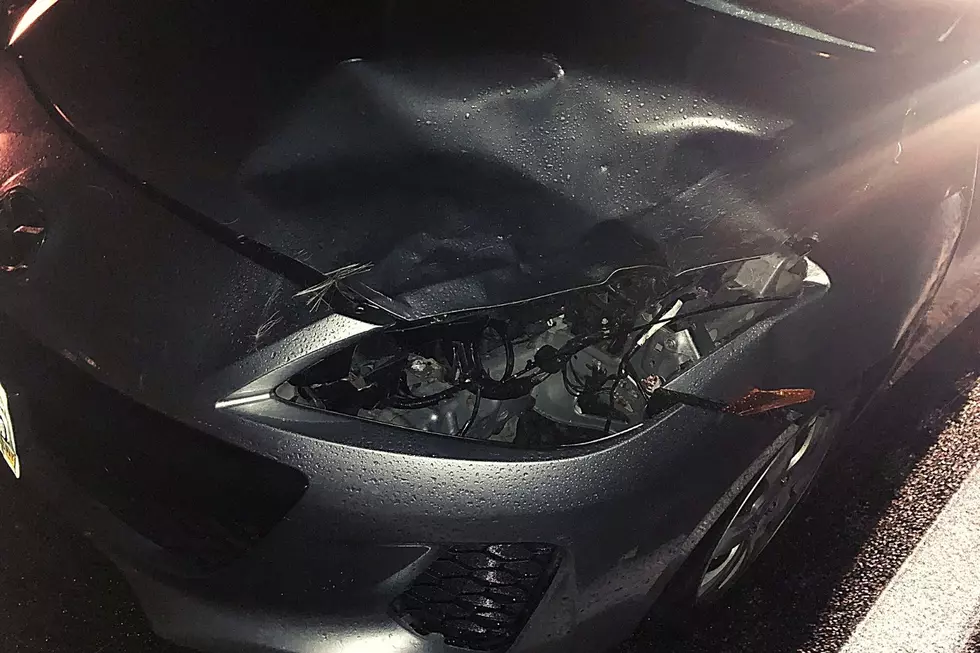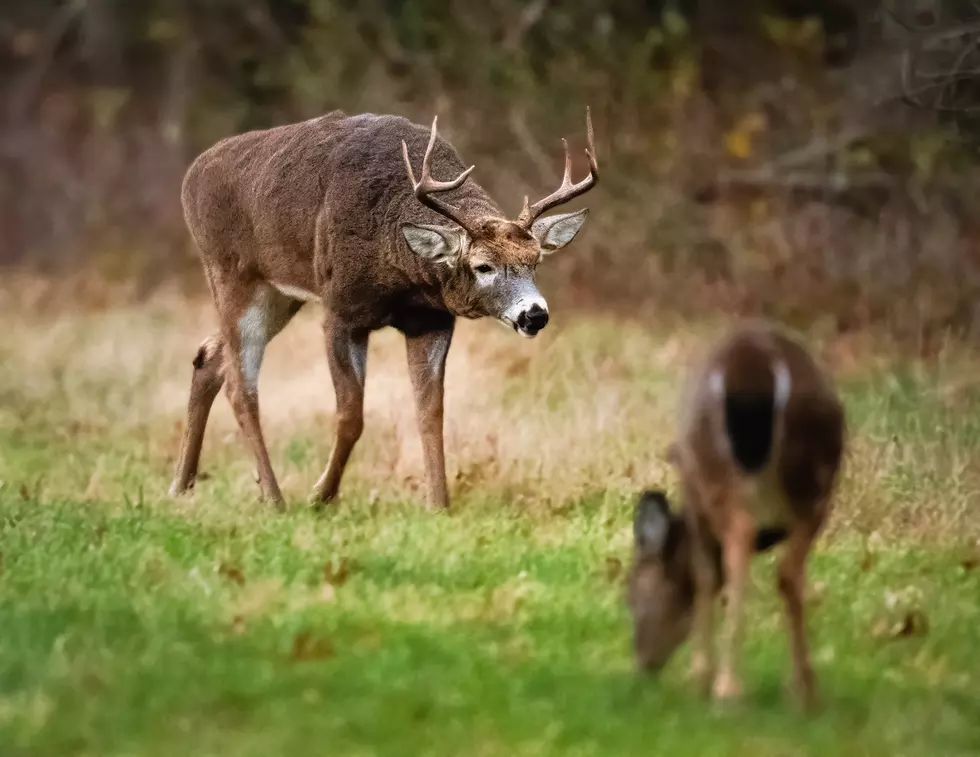
Massachusetts Motorists at Greater Risk of Hitting Deer and Moose
If ever you'll strike a deer with your car while driving in Massachusetts, this is the most likely time of year for it to happen. The risk of hitting a moose is higher, too.
The Massachusetts Division of Fisheries and Wildlife (MassWildlife) stated that "Fall is the breeding season for both moose and white-tailed deer."
As such, moose and deer are more likely to be stepping out of the woods and into your path, "especially during early morning and evening hours."
According to MassWildlife's monthly newsletter, "Moose, found in central and western parts of Massachusetts, breed in September and October. White-tailed deer breed from late October to early December."
"Moose on the road are especially hazardous. The dark color and height of moose make them difficult to see in low light; moose eyes rarely shine like deer eyes because their eyes are above headlight level," MassWildlife reported.

Mass.gov reported a moose can be about six feet tall at the shoulder and weigh anywhere between 500 pounds to well over 1,000 pounds. In other words, striking a moose could ruin your whole day – not to mention your car.
"Observe road signs for moose and deer crossings and slow down. Do not swerve to avoid hitting a deer because it may lead to more risk and damage than hitting the deer," MassWildlife wrote.
According to Mass.gov, a white-tailed deer in Massachusetts can weigh between 80 and 160 pounds and reach a height of about six feet tall. Hitting a deer can also cause considerable damage to your vehicle.
White-tail deer can be found anywhere in Massachusetts including right here along the SouthCoast and can bolt onto the roadway without much notice.
MassWildlife said all deer and moose vs. vehicle collisions should be reported to the Massachusetts Environmental Police at 1-800-632-8075.
States with the most registered hunters
WATCH OUT: These are the deadliest animals in the world
More From WFHN-FM/FUN 107
